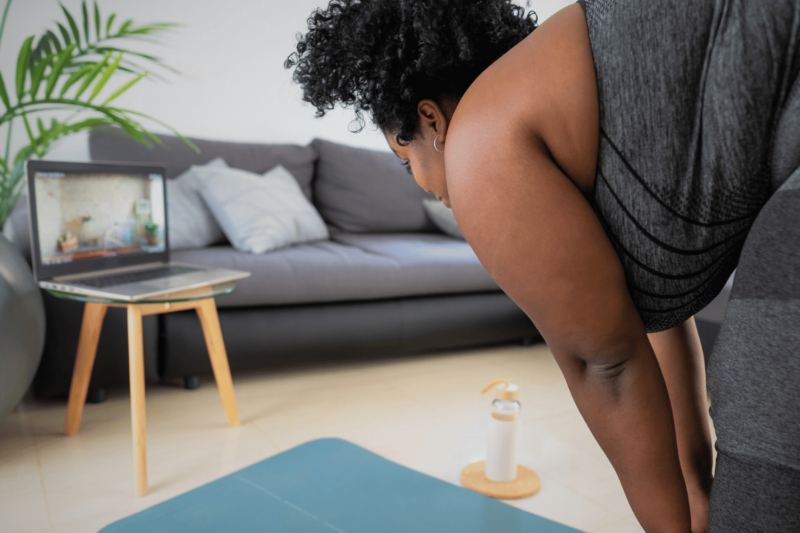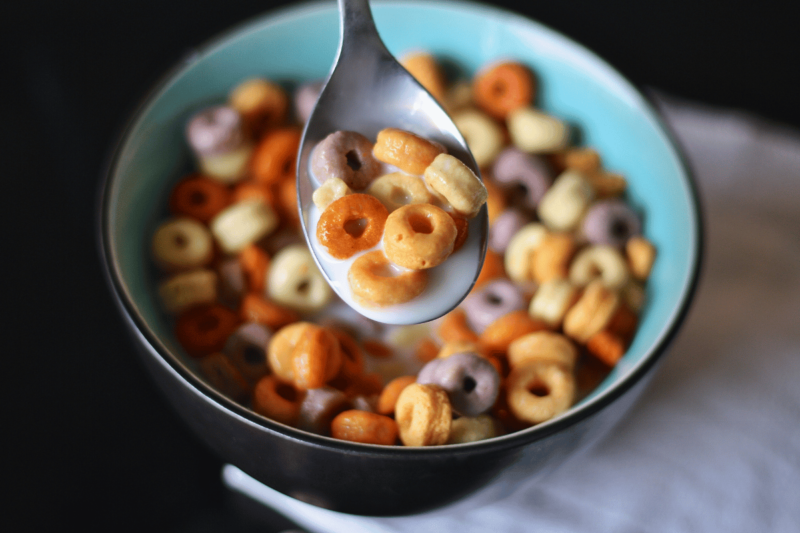
Final week, the Washington Publish revealed the most recent in its sequence of bizzarro hit items on registered dietitians. This entire factor began out final September as a result of 17 dietitian “influencers” from the U.S. or Canada posted paid content material to their social media followers and didn’t clearly disclose that sponsorship in at the very least one in all their posts.
Now, disclosure is vital (no argument there), however contemplating there are greater than 78,000 dietitians within the U.S. alone, a headline like “The meals trade pays ‘influencer’ dietitians to form your consuming habits” is slightly overblown.
It additionally paints your entire occupation with a brush meant for a only a few. On condition that many individuals learn headlines however don’t learn your entire article, this pains me. As a result of, you already know, I’m a dietitian.
(Oh, and in case you forgot/didn’t know, I used to be a vitamin freelance author for WaPo from 2016-2021)
Flash ahead to final week, and now we have one other doozy of an article. (Each time they publish a brand new one, I wish to ask the reporters, “Who harm you…and was it actually a dietitian?” So many purple flags!)
To borrow the title of a Taylor Swift tune, are you prepared for it? This new article carries the (as soon as once more) super-misleading headline, “As weight problems rises, Large Meals and dietitians push ‘anti-diet’ recommendation.” I’m not linking to the articles, as a result of I don’t wish to give them hyperlink juice, however be at liberty to Google it if you need (attainable paywall).
Whew…that’s loads, particularly contemplating they’re speaking about fewer than 27 dietitians (a few of them most likely from Canada). They’re actually going bananas with that paint brush once more. Oh, and by “Large Meals,” they’re largely speaking about breakfast cereal. Time to clutch these pearls!
There have been a number of issues that disturbed me about this shoddy piece of “investigative” reporting.* Let’s get to it, so as of significance.
*Distinction this with the stellar piece of precise health-related investigative reporting from the New York Occasions over the weekend, “Insurers Reap Hidden Charges by Slashing Funds. You Could Get the Invoice.”

Don’t get vitamin recommendation from social media
The article leads off with an anecdote from a girl who determined to take vitamin recommendation from “YouTube influencers” after years of battling binge consuming, weight reduction efforts and starvation. She says she took what they mentioned as a go-ahead to eat “regardless of the hell I needed,” after which gained weight.
O-kay. It’s unclear if this lady has Binge Consuming Dysfunction, which is a scientific consuming dysfunction, however she clearly was in a binge-restrict cycle, which is distressing and a type of disordered consuming. She wanted actual assist, not YouTube.
There isn’t a room for nuance on social media. And provided that many (most) individuals on social media are basically saying “Take a look at me! Take a look at me!” with their content material, at greatest an intriguing publish must be a catalyst to search for extra nuanced info elsewhere to see if what you learn is one thing that could be helpful or useful to you.
I do know not everybody can afford to work with a dietitian or therapist to kind by their struggles with meals, physique picture and/or well being. However should you’re searching for assist from an anti-diet / non-diet / weight inclusive dietitian, there are a number of wonderful books on the market that present info that’s much more nuanced than what you’ll discover on social media. (I’ve included a listing on the backside of this publish.)
I’ve many years of expertise as a communicator. Additionally, as a vitamin counselor I’ve typically witnessed the influence of social and mainstream media messages on my shoppers. Not all dietitians have that have. Whether or not I’m writing a e book, a weblog publish, an article or a social media publish, I think twice about my phrases. What am I attempting to say? Are the phrases I select prone to be interpreted the way in which I intend? The less phrases used, the better the danger that the influence won’t match the intent.
And I’ve to surprise, who’re these “anti-diet” dietitian influencers? Are they only right here for an “anti-diet” celebration, or have they actually dug in and completed the work? Are they advocating for stigma-free entry to healthcare and freedom from physique oppression for ALL our bodies, or are they largely about consuming the cupcakes?

No, actually, don’t trouble studying any analysis
I really feel a great deal of compassion for the lady featured within the article. Hundreds. However it is extremely curious that the reporters select to middle the article on one lady who had a nasty expertise after following impersonal recommendation from somebody on YouTube.
I suppose it might let the info get in the way in which of a superb story if in addition they shared an anecdote from somebody who was impressed by an anti-diet dietitian they comply with on social media to do their very own studying and possibly search out a educated, skilled anti-diet dietitian for 1-on-1 work.
I suppose it might interrupt their narrative (cue report scratch) to really cite any of the analysis exhibiting that anti-diet / weight inclusive / Well being at Each Measurement approaches can enhance well being and well-being.
I used to be a bit startled when the lady on the middle of the article says YouTube influencers urged her to “begin listening to her ‘psychological starvation,’” and that she “grew to imagine that limiting meals in any trend would put her well being in peril. Listening to psychological starvation meant that if she was occupied with a meals, she ought to eat it.”
Studying this, I questioned, once more, who had been these influencers?

Intuitive consuming isn’t impulsive consuming
What does “psychological starvation” imply to you? Cravings? Yeah, that’s how I’m studying it, too. One dialog I’ve with every of my anti-diet, intuitive consuming shoppers sooner or later is the excellence between a real, real craving and an impulsive craving. Honor the previous, and maintain off on the latter (whereas exploring it with curiosity), as a result of it often a whim of the second.
The opposite factor I considered once I learn “psychological starvation” was the phenomenon of “I’m bored. I’m going to have a snack.” Consuming merely since you’re bored is one taste of emotional consuming, and emotional consuming is one thing value being explored in depth.
In centering this clickbait anecdote, the reporters miss a necessary reality about an anti-diet strategy: there’s an enormous hole between 1) by no means permitting your self to have a cupcake and a pair of) throwing out all semblances of vitamin to go all in on cupcakes.
“Make peace with meals” is among the 10 rules in “Intuitive Consuming: A Revolutionary Anti-Weight-reduction plan Strategy” by dietitians Evelyn Tribole and Elyse Resch. And intuitive consuming is a giant a part of the anti-diet strategy. However intuitive consuming isn’t impulsive consuming.
When somebody involves intuitive consuming after an extended interval of psychological or precise meals restriction, it’s not unusual to have a “honeymoon interval” of deeply exploring previously forbidden meals.
Nonetheless, if unconditional permission to eat all meals you get pleasure from isn’t paired with attunement to starvation, fullness, satisfaction, and the way what you’re consuming makes you are feeling bodily, issues are going to begin to really feel chaotic. Why? Since you’ve traded one excessive (restriction) for the opposite. That is the place expert anti-diet dietitians assist individuals discover that center floor of consuming for vitamin and pleasure.
Hey, guess what? I even wrote about this for WaPo again in 2019!
Associated Posts:

Don’t blame the TRUE anti-diet motion for being co-opted
The reporters actually speak (write?) out of each side of their mouth. On the one hand, they level out that many individuals are co-opting the precise anti-diet motion:
“now international meals entrepreneurs are looking for to money in on the development”
“a multipronged marketing campaign that capitalizes on the teachings of the anti-diet motion”
“On-line dietitians — a lot of them backed by meals makers — are additionally constructing profitable followings by co-opting anti-diet messages”
They even have the sub-headline “How the anti-diet motion has been distorted,” adopted by quotes from leaders from the Affiliation for Measurement Variety and Well being (ASDAH) — not, because the reporters wrote, “leaders of Well being at Each Measurement,” as Well being at Each Measurement (or HAES) is a registered trademark of ASDAH, not a corporation in and of itself.
These leaders level out, fairly rightly, that their work has been distorted on social media, and that the broad enchantment of HAES on-line has “allowed it to be commercialized,” despite the trademark:
“You’ve gotten a number of privileged individuals speaking about Well being at Each Measurement, sadly, as a result of it’s worthwhile.”
In addition they quote Intuitive Consuming’s Elyse Resch as saying…
…large meals firms touting anti-diet slogans are “simply attempting to earn more money, and intuitive consuming has been co-opted.”
Then again, the reporters blame the anti-diet “motion” itself, not simply it’s co-opters:
“The anti-diet strategy basically shifts accountability for the well being disaster away from the meals trade…”
Proper earlier than that final bit, the reporters commit the far-too-common mistake of conflating affiliation with causation:
“Almost half one million People die early annually on account of extra physique weight, in line with estimates in a 2022 Lancet research.”
Naturally, I went straight to that research, titled “Extra mortality related to elevated physique weight within the USA by state and demographic subgroup: A modelling research.”
Related to? Say it with me: Affiliation isn’t causation!
Hey, WaPo reporters? Perhaps you shouldn’t be reporting on something health-related should you don’t perceive that primary, elemental reality. Or possibly it’s simply your anti-fat bias exhibiting.
In addition they write: “the brand new anti-diet motion is hurting individuals liable to well being issues…” Wait a minute — the co-opters are NOT the “new anti-diet motion.” They don’t get to outline what the anti-diet “motion” is as a result of they aren’t practising an genuine anti-diet strategy.

Completely lacking the purpose
Not surprisingly, the article doesn’t truly give the reader an correct image of what an anti-diet strategy truly is, aside from a token phrase that it started as “an effort to fight weight stigma and an unhealthy obsession with thinness.”
It additionally ignores some easy info. One is that restrictive diets (something that creates a calorie deficit) don’t work for the long run, as a result of most individuals find yourself regaining most or all of no matter weight they lose. One other is that demonizing meals and continually beating the load loss drum can set off or exacerbate consuming issues in prone individuals.
One particular person dies each 52 minutes as a direct results of an consuming dysfunction.
The purpose of the anti-diet strategy is extra peace with meals and physique, which might scale back stress and weight biking, each of that are good for well being. Research present, that, on common, there’s no weight change with this strategy. On a person stage, when shifting from weight-reduction plan to intuitive consuming, some individuals acquire weight, some individuals drop extra pounds, and a few individuals keep across the similar. This relies partly on the place they at after they began. Had been they recent off a food plan and quickly weight suppressed? Had been they binging nightly?
The article quotes its anecdotal lady as saying: “Your relationship with meals would simply get magically healed, should you simply ate the doughnuts and ate the cookies and weren’t afraid of what you had been consuming.”
No, there’s no “magic” within the anti-diet strategy.
It’s a journey, with dips and hills and curves and switchbacks and generally two steps ahead and three steps again. It’s lastly pondering you’ve acquired this anti-diet, intuitive consuming factor down, solely to have food plan tradition unexpectedly broadside you and ship you spiraling till you collect your sources and climb out, stronger than earlier than.
Individuals who search intuitive consuming or one other anti-diet strategy accomplish that as a result of their relationship with meals and their physique is deeply broken. They’re grappling with years or many years of yo-yo weight-reduction plan, restrict-binge cycles, physique loathing, meals fears and a perception that their value and their well being relies on their physique measurement. They might have a clinically diagnosable consuming dysfunction, or they might be flying deeper beneath the radar with a sub-clinical consuming dysfunction or “simply” disordered consuming.
They might have restricted and starved and completed fasts and cleanses. They might have tried each food plan beneath the solar, limiting fats then carbs then total classes of meals. They might be looking for purity as a lot as they’re looking for a smaller pants measurement.
No, unlearning years or DECADES of that to allow them to heal isn’t “magic.” It’s a number of work, however the therapeutic is value it. My anti-diet/intuitive consuming shoppers begin taking good care of their bodily and psychological well being in ways in which they by no means did earlier than.
I’ve a shopper I’ve been working with for just a few years. Her weight stabilized with intuitive consuming (no extra wild fluctuations as she had when she was weight-reduction plan). She is now 100% safe and fear-free together with her meals selections. She enjoys “wholesome” meals and scrumptious desserts. She is in stability. She enjoys motion and lives her life totally. And is unhappy to witness that just about each lady she shares meals has a totally f-ed up relationship with meals.
Associated Publish:

I do want meals firms would knock it off
I don’t subscribe to Large Meals conspiracy theories, however anti-diet approaches and Well being at Each Measurement shouldn’t be used to advertise particular meals manufacturers, interval.
Within the context of the WaPo article, the co-opting comes largely within the type of selling that consuming breakfast cereal is a vital a part of “breaking the cycle of meals disgrace.” Sorry, however that’s a stretch, and slightly offensive.
Is it unhealthy to eat cereal? No. Ought to somebody really feel guilt or disgrace as a result of they ate breakfast cereal? Completely not. Is breakfast cereal an amazing thought of what to eat for breakfast? Eh, not essentially.
I don’t learn about you, but when I eat a bowl of cereal for breakfast, I’m going to be hungry once more annoyingly quickly. I’ve had soooo many sufferers and shoppers over time inform me that they don’t perceive why they’re hungry an hour after consuming breakfast, and that there should be one thing flawed with them.
I ask them what they’re consuming, and generally it’s one thing like a bit of toast with butter and jam (hi there…nearly no protein), however often it’s a bowl of breakfast cereal. There’s a motive that so many cereal advertisements say “a part of an entire breakfast.”
If a shopper is consuming one thing that’s not serving them effectively — it’s not satiating sufficient, it makes them sleepy, it provides them heartburn — we’re going to speak about why they like that meals, and in the event that they wish to proceed having fun with it, how to take action in a manner that serves them higher.
Intuitive consuming and different anti-diet approaches are about eradicating the “good” and “unhealthy” labels from meals, partially as a result of we regularly switch these labels to ourselves. (“I ate a ‘unhealthy’ meals, ergo I’m unhealthy.”) However that doesn’t imply that each one meals are equal when it comes to how they make you are feeling bodily or how they assist what you, individually, deem vital when it comes to your personal well being.

The notorious FNCE Expo Corridor
I laughed on the sentence, “The meals trade’s shut relationship with dietitians was on full show this previous fall in Denver on the Meals and Diet Convention and Expo, the world’s largest gathering of registered dietitians.”
Sure, a lot has been product of meals trade cubicles within the expo corridor, and I don’t 100% disagree with a few of the raised eyebrows. However the way in which the WaPo article portrays it, it’s like one large carnival of processed meals purveyors. Not so.
Sure, there are just a few large, flashy cubicles with gimmicky video games or whatnot, however there are additionally cubicles for almonds, and walnuts, and pulses, and Bob’s Purple Mill! I’ll NOT stand in line to reply a trivia query or spin a wheel to win a tchotchke that will get left behind in my resort room. (To cite Ms. Swift once more, “you play silly video games, you win silly prizes.”) However I’m down for nuts, beans, lentils and entire grains!
There are a number of hundred cubicles within the expo, and I do know prematurely the dozen or so I wish to go to. The remaining are simply visible noise. In Denver, my expo spotlight was fangirling on the NIH Workplace of Dietary Dietary supplements sales space — a sales space that’s not attractive sufficient for WaPo, clearly.
Do I feel it’s cool that the three greatest cereal firms are threatening to sue the Meals and Drug Administration (FDA) over a proposed rule to restrict what meals producers are allowed to advertise as wholesome — as a result of the proposed restrictions would violate their First Modification rights? Under no circumstances.
- Why does nobody perceive what the First Modification truly covers? (Aaarrrggggghhh!)
- I’m not 100% on board with the FDA’s proposed rule (attempting to outline “wholesome” is a sticky wicket), however I’m additionally aggravated by what number of meals merchandise at the moment have actually questionable language purporting their healthfulness.

The underside line
I can’t completely blame the reporters, as a result of I used to be as soon as the place they’re, safe within the perception that if all of us ate completely, there can be no continual illness. It’s such a heat, fuzzy, sanctimonious place to be.
Then I earned an precise Grasp of Public Well being diploma in vitamin science and realized about issues like genetics and social determinants of well being. And woke the hell up.
I realized that well being is much more sophisticated than what’s on our forks or our plates. Not that vitamin doesn’t matter. It does. However so does entry to non-judgmental healthcare, freedom from oppression, clear ingesting water, entry to inexperienced areas, feeling protected in your personal residence, having private autonomy.
I additionally realized that fearmongering about vitamin and well being results in actual hurt.
I’m going to say it once more: don’t use social media for vitamin, well being, or anti-diet recommendation. When you aren’t able of to work with a stable, grounded anti-diet dietitian, right here’s that listing of books I promised:
This publish comprises Amazon Affiliate hyperlinks. As an Amazon Affiliate I earn from qualifying purchases.
Carrie Dennett, MPH, RDN, is a Pacific Northwest-based registered dietitian nutritionist, freelance author, intuitive consuming counselor, creator, and speaker. Her superpowers embody busting vitamin myths and empowering girls to really feel higher of their our bodies and make meals selections that assist pleasure, vitamin and well being. This publish is for informational functions solely and doesn’t represent individualized vitamin or medical recommendation.
Looking for 1-on-1 vitamin counseling? Carrie affords a 6-month Meals & Physique program (intuitive consuming, physique picture, mindfulness, self-compassion) and a 4-month IBS administration program (low-FODMAP food plan teaching with an emphasis on growing meals freedom). Go to the hyperlinks to study extra and e book a free intro name to see if this system is an effective match, and if we’re a superb match!
